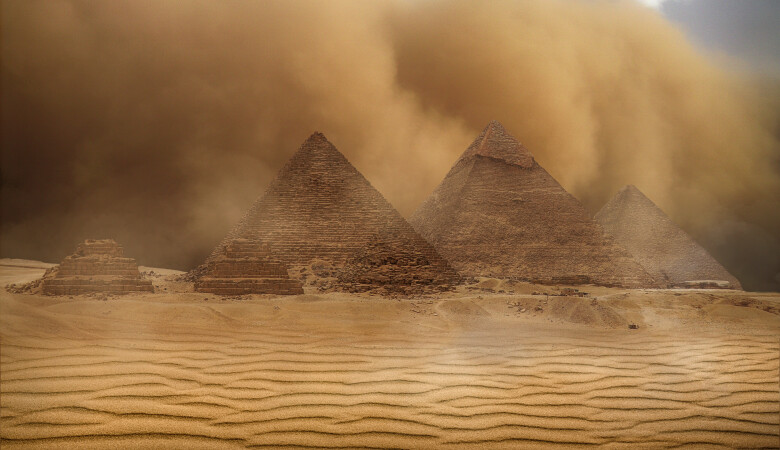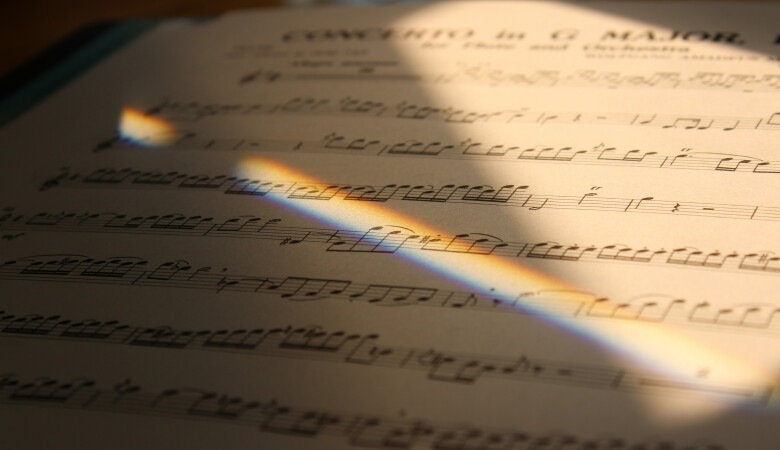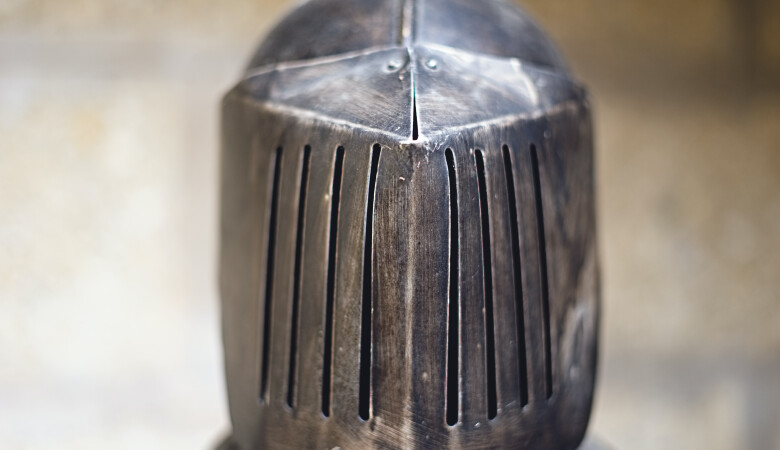Egypt's Judgment and Salvation (Isaiah Sermon 20 of 80)
September 28, 2008 | Andy Davis
Isaiah 19:1-20:6
Works of the Flesh, Trials, Judgment, Prophecy
Pastor Andy Davis preaches a verse-by-verse expository sermon on Isaiah 19:1-6. The main subject of the sermon is that all who fail to rely on God will be put to shame and all who rely on Him will never be put to shame.
- SERMON TRANSCRIPT -
I. Introduction
Have you been following current events? Do you have your favorite news outlet? Do you like to watch the news? Maybe it’s CNN, or MSNBC, or maybe you’re reading that, perhaps, soon-to-be-obsolete form of the news known as the newspaper. I don’t know what the future of the newspaper is. Are you tracking current events? If so, then you are susceptible to anxiety. Of course, that’s been true in every generation and every era. As we track current events, we are susceptible to anxiety. As it says in Psalm 11, “When foundations are being shaken, what can the righteous do?”
Now, you can read Psalm 11, and say there’s an implication that there’s nothing the righteous can do if the foundations are being shaken. But I tell you, we have a God that delights in shaking unstable foundations. He delights in it because He loves us too much to enable us or to allow us to build on sand. We have a habit of building our houses on the rock that cannot be shaken when the rains come down, and the streams rise, and the winds blow and beat against that house, but then building extensions out on the sand and then living out there because we feel a little more comfortable in that part of the house. The Lord delights in sending the storm and crashing those things down. It’s an uncomfortable process, isn’t it? As we look at what’s happening economically in our country, as we look around and we look ahead to an uncertain future, it’s an uncomfortable thing to try to anticipate where we’re heading as a nation, where the world is heading.
We’re not the only ones asking this question. In some places it’s a matter of food shortage, places like Haiti where they don’t have enough to eat because the food distribution systems have broken down. So we believe in a God who delights in shaking foundations and giving instead a solid foundation that can never be shaken, founded on the word of God, on the work of Jesus Christ. When I come to Isaiah 19 and 20, I really think that’s what these two chapters are about. They are an oracle of woe to the nation of Egypt in a certain specific time and place, over twenty-six centuries ago. There are certain things that were going on at that time. We might struggle to find relevance in what was happening at that point. But God had a word to say to the Egyptians, to strip them of their arrogant self-importance and their love for their own wisdom, and to enable them to turn to the God of Abraham, Isaac, and Jacob and build on Him. That Egypt would become God’s people through repentance and faith in Christ. Isaiah also, I think, has a message to the Jewish nation. He was a Jewish prophet. He was ministering there in Jerusalem. And he was speaking a word of warning to the Jews, lest they should turn to Egypt for help in times of trouble.
Let’s remember what was going on in the geopolitical scene back then, a scene that’s alien to us. So long ago. But elements are still with us today. You had two major super powers vying for control of Palestine, of the ancient near east. You had Assyria, the Nazis of the ancient world, they were in the north. They were powerful and strong. You had Egypt in the south, perennially wealthy, powerful, and strong. In between them, you had all these tiny little nations like Israel and Judah, the two Jewish nations. You had Moab, Edom, the Ammonites, the Philistines, and all these smaller powers that were there in Palestine. Between the two super powers there was always some vying for control and power. The little states were making alliances with one another and were tempted to turn to one of the super powers against the other, etcetera.
At one point, King Ahaz was tempted to turn to Assyria for help. You remember when Ephraim, the northern kingdom of Israel, and the Arameans allied together. Ahaz wanted to make an alliance with the Assyrians, of all things. But then, Hezekiah was being tempted to make an alliance with the Egyptians against the Assyrians. So there is a message of warning here spoken to the Jews. Don’t trust in Egypt because Egypt’s going to be destroyed. Its captives are going to be led away in utter disgrace. Why trust in a nation whose future is like that? Trust rather in God. There was a message to ancient Egypt. There was a message to the Jews of that time. But there’s a timeless message to all of us. Let me ask you this question: What is the foundation of your life? What are you trusting in today? When you look ahead to an uncertain future, how do you comfort yourself when feeling of anxiety rise? That’s your hope right there. If it’s financial, if it’s economic, if it’s your job, if it’s your education, if it’s clever things you’re doing to beat the economic indicators, whatever, that’s what you’re trusting in. If you’re trusting in this: that the Lord has never forsaken His children, then that’s what you’re trusting in. You’re trusting in the Lord. It seems to me that the Lord wants to wean us off of self-trust and trust in things that cannot last, things that will disappoint us. He is in the business of shaking those foundations so that we can trust in Him. We can have a solid foundation from which we can minister hope and trust to others who don’t know that foundation, who is Jesus Christ.
That’s what God wants us to do. And I believe that’s why He sends trouble and affliction in every generation. The things we’re facing economically, I’m talking about a $700 billion bailout, the President meeting with members of Congress. Some people say it’s nowhere near enough. It’s an interesting situation. What’ll it look like if the dollar is close to worthless in ten years or ten months? What will our life look like? People are asking those questions. Those are unsettling questions. They are the kind of questions that make you say, “Oh gee, what’s it going to be like if you go to the supermarket and there’s no food at all and gas is ten dollars a gallon?” You learn to ride a bike for the first time in years and you start to wonder, “What is my lifestyle going to look like?”
We’ve gotten accustomed to a certain way of living here, haven’t we? Is the Lord shaking those foundations? And a deeper question, is the Lord calling on us to repent? Is the Lord calling on us to turn and face sin, and to deal honestly with Him and His law? To be broken hearted before Him and not arrogant? Those are the questions that come to me from Isaiah 19 and 20.
II. Egypt’s Future Judgment
The Lord’s Wrath Against Egypt (v 1)
This prophecy is a prediction of future judgment on Egypt. The future at that time, it’s happened now. God fulfills His promises. He predicted through Isaiah that He would judge Egypt in every way imaginable. He would judge their politics. He would judge their religion. He would judge their economy. He would judge the wisdom of their counselors. He would judge them militarily. It was a comprehensive judgment right from the beginning. Look at verse one of Isaiah 19. It says, “An oracle concerning Egypt: Behold, the Lord rides on a swift cloud and is coming to Egypt. The idols of Egypt tremble before him, and the hearts of the Egyptians melt within them.” This is a terrifying picture of the coming wrath of God, of God coming on a cloud to destroy Egypt.
It’s a wrath they should still well remember from the days of Moses, when He laid Egypt to waste by ten plagues and by the destruction of the Egyptian army at the Red Sea. I’m sure they did remember that, years later. Now He’s coming on a swift cloud to bring judgment again on Egypt. He begins, in verse 2, with civil strife and conflict. “I will stir up Egyptian against Egyptian – brother will fight against brother, neighbor against neighbor, city against city, kingdom against kingdom.” This is civil strife and conflict, perhaps even civil war. And notice it says, “I will stir up Egyptian against Egyptian.” This is the sovereignty of God over the hearts of Gentile people. It says in Isaiah 45:7, “I form the light and create darkness, I bring prosperity and create disaster; I, the Lord, do all these things.” The sovereignty of God is over this. This is judgment from God. This isn’t an accident. It’s judgment from God.
Their idolatry is exposed in verse 3. “The Egyptians will lose heart, and I will bring their plans to nothing; they will consult the idols and the spirits of the dead, the mediums and the spiritists.” Egypt was well known for their religion that embraced the occult. The dark mystery religion of Egypt, of Osiris and Isis, had shaved priests, muttering and whispering, like mediums and spiritists trying to contact the dead. The pyramids are a testimony to how they believed in life after death and how they prepared for it. It was a dark and evil religion. Their idolatry was going to be exposed as worthless.
In verse 4, we see the power of oppression, of government that would come and would oppress. Verse 4, “I will hand the Egyptians over to the power of a cruel master, and a fierce king will rule over them.” Well, I don’t know which fierce king this would be. It could be one king after another. All of these conquerors wanted Egypt, the bread basket of the ancient world. And so they would come. Egypt would lose its autonomy, and fierce and powerful masters will rule over them.
God would judge Egypt’s economy. It’s not just we in the 21st century, looking at CNNmoney.com (or anything like that), who have been interested in the economy. The Egyptians were interested in their economy, too. God was going to bring a judgment on their economy. Does God do that? Does He actually judge the economies of the nations? The answer is yes, He does. All He has to do with Egypt is hit the Nile. If He can strike the Nile, then the economy withers. It shrivels. Egypt was totally dependent on the Nile for life. I was looking, a few weeks ago, at a NASA satellite photo of Egypt. There is this thin green, slender thread winding its way through the Sahara Desert. It’s the Nile River, the irrigation canals, and the fertility on either side of the Nile River. It goes out to this emerald kind of fan in the Alexandria region where it spills into the Mediterranean Sea. Basically, without the Nile River, there is no Egypt. There’s just more Sahara Desert.
So they totally relied on the Nile. And what does God say? He’s going to dry up the Nile River. Look at verses 5-6: “The waters of the river will dry up, and the riverbed will be parched and dry. The canals will stink; the streams of Egypt will dwindle and dry up.” Note the death of all plant life. Verses 6-7, “The reeds and rushes will wither, also the plants along the Nile, at the mouth of the river. Every sown field along the Nile will become parched.” That, my friends, is famine right there. That’s famine. “Will blow away and be no more.” Those plants mean life to Egypt. They mean economic power too, because they exported food. Note the economic disaster in verses 8-10. “The fishermen will groan and lament, all who cast hooks into the Nile; those who throw nets on the water will pine away. Those who work with combed flax will despair, the weavers of fine linen will lose hope. The workers in cloth will be dejected, and all wage earners will be sick at heart.”
This is all the economy here. These are people who make their living by the Nile and by the things that grow up from the fields that are irrigated by water from the Nile. And it’s all withering up. It’s all going to blow away, like dust in the wind. The question behind all of this is, if the nation of Egypt is so fragile that a judgment on the river causes it to wither and die and blow away like dust, then, oh Israel, why trust in them? Why put your hope in Egypt? Hope in the Lord, not in the Egyptians. Don’t trust in them. They’re fragile, and more than that, they’re under the judgment of God. He actually says, “This will happen.” Not just might happen, He says it’s going to happen.
God Judges Egypt’s Wisdom (vs 11-15)
God judges Egypt and He judges their wisdom. Look at verses 11-15, “The officials of Zoan are nothing but fools; the wise counselors of Pharaoh give senseless advice… The Lord has poured into them a spirit of dizziness; they make Egypt stagger in all that she does, as a drunkard staggers around in his vomit. There’s nothing Egypt can do – head or tail, palm branches or reed.” Consistently throughout the book of Isaiah, God reserves, through the prophet, His bitterest attacks on human pride and arrogance. He hates it. We see this again and again. Among the aspects of human pride that most offends God is considering yourself wise in your own eyes, clever in your own sight.
It says in Isaiah 5:21, “Woe to those who are wise in their own eyes and clever in their own sight.” Like any prosperous nation, the Egyptians didn’t have to worry about food. The Nile ran just like clockwork, rose and fell at the same time every year. And it had done so for centuries. So they didn’t need to worry about it. They had plenty of food. Everything gave them leisure time to develop other kinds of industries and all kinds of other pursuits, such as philosophy, religion, music, culture, and all of those things. There were ancient systems of wisdom, philosophy, and religion that concocted together to give Pharaoh his wise counsel, so to speak. They were very proud of it, weren’t they? Very arrogant and prideful about their wisdom and the council that they could give to Pharaoh. I was on the Washington Post website. They edit and publish columns every day submitted by thirteen prominent think tanks on a rotating basis, every other weekday. It’s called Think Tank Town. Now, what is a think tank? It’s a bunch of experts that come together around a certain issue. They talk about it, discuss it, and bring forth all of their wisdom and pour it out onto the table. With everybody pouring out their wisdom, they concoct a brew of collective wisdom at the think tank. It bubbles in a cauldron and out comes the aromas of human wisdom from the think tanks. That’s quite an image, isn’t it?
There it is, Think Tank Town. Of all the towns in our country, which would you say is the best city for that? Couldn’t it be Washington, DC? Isn’t that where all the experts are? All the pundits who talk about the future, have a bright plan, and who basically say, “If only the President would listen to me! I have an insight. I know what to do, but I just can’t seem to get his ear.” We can’t seem to do it the right way. Everybody’s got an angle. We can listen to them on the talk shows and all that kind of stuff. The Egyptians had it too, a long time ago. I don’t think they called it a think tank back think, but they had their wise counselors. And the Lord says, “I’m going to frustrate the wisdom of the wise. They want to play chess with Me, they will lose.” It’s quite plain why. Because they don’t know what the Lord is going to do. Look at verse 12. This is really important, friends. “Where are your wise men now? Let them show you and make known what the Lord Almighty has planned against Egypt.”
Go ahead, wise man, tell me what the Lord is going to do. By the way, why does it matter? Because that’s actually what’s going to happen. Other predictions may or may not happen. The things that the Lord plans to do, they actually happen. The Lord delights to hide His plans from arrogant, boastful counselors like this. They guess wrong. Is that relevant to us? What’s the Lord going to do? What’s He going to do? Is this like Y2K, when nothing comes of it, or is it like September of 1929, when something comes of it? Well, which is it? Can you tell? And if it’s this bad, but no worse, you should do this. But if it’s going to be this bad, then you should do that. But we don’t know, do we, what’s going to happen? Where are you going to turn for your wise counsel? Let me ask you a simple question. What are you relying on for the future? I would urge you to get on your knees and ask the Lord what to do. I’m speaking about as plainly as I can.
If you’re the head of a house, and you have economic concerns for the future, get on your knees in the spirit of Isaiah 19:12, or actually the opposite. Say, “Lord, I don’t know what you’re going to do, but I do know I’m your child. I don’t think You have to tell me everything You’re going to do. But tell me what I have to do today.” Then go do it, and God will give you wisdom and council. So yes, we should rely on the Lord for salvation on judgment day. You should get ready for judgment day through faith in Christ, absolutely. But what about today? It’s not more important than judgment day, but it is important. How are you going to provide for your family? How are you going to make wise choices? What are you going to do for yourself in the future? You don’t know what the Lord is planning to do. Do you? Neither do I. But you do have this, you have free access to the throne of grace, and you can obtain mercy and find grace to help you in times of need. Ask Him what to do. Have I spoken it plainly enough?
I can’t give you any better economic advice than that, because I don’t know what the Lord’s going to do. Neither did these counselors of Pharaoh. As a matter of fact, the Lord was planning on orchestrating their foolish council to make it foolishness. I think about 1 Corinthians 1:20, where it says, “Where is the wise man? Where is the scholar? Where is the philosopher of this age? Has not God made foolish the wisdom of the world?” He delights in doing that. Christ is God’s wisdom. Christ crucified is the wisdom of God, not some economic plan. It’s Christ crucified that is the wisdom of God. For it says in 1 Corinthians 1:23-25, “We preach Christ crucified: a stumbling block to the Jews and foolishness to the Gentiles, but to those whom God has called, both Jews and Greeks, Christ the power of God and the wisdom of God. For the foolishness of God is wiser than man’s wisdom, and the weakness of God is stronger than man’s strength.”
Go to the cross. Go to the cross. If you don’t know whether your sins are forgiven, if you came in here because you were invited, or used to come to church, or you’ve maybe been coming here for years, but you don’t know whether your sins are forgiven, go to the cross. Jesus is the power of God, Christ crucified. Are you ready for judgment day? All the judgments that we face, all the judgments of military or economic or medical emergencies, they’re all just pictures of that final judgment that’s coming. Judgment day, in which we will stand before God and give an account for our souls. He will tell us, “Welcome into my kingdom” or “depart from me, you were cursed.” Now that’s the judgment day. Are you ready for it?
Egypt’s Strength Stripped (v 16)
Well, Egypt was wise. They trusted in their own wisdom, trusted in their own military and their own strength. That strength was turned into weakness. Look at verse 16, “In that day the Egyptians will be like women. They will shudder with fear at the uplifted hand that the Lord Almighty raises against them.” No mighty superpower will Egypt be then. Her military strength will be as nothing. Egypt’s mightiest soldiers will be trembling and hiding. They don’t want to pick up the shield, the sword, the spear and ride out in the chariot. They’re terrified at the judgment God is bringing. Now, we have seen, therefore, the coming judgment on Egypt. Judgment on Egypt, politically, religiously, economically, socially, militarily, in every way. Doesn’t that leave an interesting question if you’re living in Isaiah’s day and you know that they’re actually sending emissaries down to Egypt to conduct an alliance with the Egyptians against the Assyrians? Why in the world would you want to do that? Egypt’s going to get judged. They’re under the judgment of God. Why would you ally yourself with them? Why trust in Egypt? Trust in the Lord.
III. The Shame of Relying on Egypt
Put your finger here in Isaiah 19 and turn over to Isaiah 30. Isaiah 30:1-7 has an incredibly relevant cross-passage, or cross-reference, on this. Judah was constantly tempted to run back to Egypt for help, to turn to Egypt when in trouble. This, my friends, is a great insult to Almighty God. In the time of King Ahaziah, Ahab’s wicked son, in the time of Elijah the Prophet, Ahaziah fell through the latticework and was severely wounded. As he lay there, he immediately sent messengers to the pagan city of Eckron to consult Beelzebub and see whether he would live or not. Do you remember that? Remember how Elijah intercepted the messengers. He stopped them in their tracks and said, “Go back and tell the man who sent you, ‘Is it because there is no God in Israel that you are sending to Beelzebub in Eckron to find out what’s going to happen?’ Therefore, thus says the Lord, ‘You will certainly die. You will not recover.’ There, you have your answer. Go back and tell him.” Is it because there is no God in Israel that you’re making an alliance with Egypt? This is a great insult to God.
So, Isaiah 30 talks about emissaries, or envoys, that are sent down across the blazing desert with gold and silver on the backs of donkeys and camels to give to Egypt, to hire an army if the Assyrians should come. That’s what they’re doing. And this is what the Lord says, “ ‘Woe to the obstinate children’ declares the Lord, ‘to those who carry out plans that are not mine, forming an alliance, but not by my spirit, heaping sin upon sin; who go down to Egypt without consulting me;’” You can just circle that in your Bible: “without consulting me.” “Who look for help to Pharaoh’s protection, to Egypt’s shade for refuge. But pharaoh’s protection will be to your shame; Egypt’s shade will bring you disgrace.” (Is 30:1-3) Look at verses 6-7, “The envoys carry their riches on donkeys’ backs, their treasures on the humps of camels, to that unprofitable nation, to Egypt, whose help is utterly useless. Therefore I call her Rahab the Do-Nothing.”
Go back to Isaiah 19. For me personally, spiritually, it occurs to me that God is offended with me if I ever trust anything but him. I mean about anything. I don’t just mean my soul on judgment day. I mean about the future, my economic future, about anything that I should trust in something and comfort and console myself as I think anxious thoughts, perhaps about the future and say, “yes, but I always have such and such. I’ve always got this laid by.” That’s the trust, my friends. If it isn’t the Lord, it is an idol and the Lord is offended by it. Now, you may say, “I have no idols in my life.” We’ll see. I think, as I said, that the Lord delights in shaking faulty foundations. If you have built your house on the rock, but a back extension out on the sand, it may be that the Lord sends a storm, and it will come crashing down.
The Lesson: Shame on All Who Don’t Rely on God
Then we’ll see what you’re really trusting in for your joy, and for your security. But for me, I just want to build my house on the rock. I am as tempted as anyone to build back extensions on the sand. But it occurs to me from Isaiah 19 and 20 and Isaiah 30 that God is offended when we do that. He’s not pleased with it. Therefore, we should repent. It is, therefore, a shameful thing to rely on anything but God. In Isaiah 20:5-6, the prophet says, “Those who trusted in Cush and who boasted in Egypt will be afraid and put to shame. In that day the people who lived on this coast will say, ‘Behold, what has happened to those we relied on, to those we fled to for help and deliverance from the king of Assyria! How then can we escape?’” They’re gone. Now, what’s going to happen to us? You’ll see.
When the foundations are shaken, what can the righteous do? Well, don’t build your house on Egypt. They’re going down. That’s what the message is. It’s a shameful thing to rely on them. The message, again and again, is that God judges that kind of pride and that kind of arrogance. But you know what? All of that judgment and all of that warning and all of that shame, my friends, that’s not the center of this passage. You know what the center of the passage is? God’s mercy and grace to Egypt in saving them. Hallelujah! The center of this is that God actually has a saving purpose, even toward Egypt and Assyria. He wants to save people out of that. Therefore, He’s giving Egypt this warning. He’s calling on them to turn away from their own wisdom and their own military power and their economic strength, to turn away from that and to trust in the God of Abraham, Isaac, and Jacob. And do you know why? Because (Jesus said it to the Samaritan woman) salvation is from the Jews. It would be good for Egypt to learn that. He sends affliction so that they would learn that lesson.
IV. The Glorious Future of Egypt – and the World (19:17-25)
Transformed Hearts: The Fear of the Lord is the Beginning of Wisdom
We see the glorious future of Egypt and of the world. Look at Isaiah 19:17-25, which Paul already read for us. God has always had His eye on the whole world, from the beginning of calling Abram from Ur of the Chaldeans. He says, “I will bless those who bless you, and whoever curses you I will curse; and all peoples on earth will be blessed because of you.” (Gen 12:3) God intends to save an elect people, a chosen people, from every tribe and language and people and nation, including the Egyptians. He’s going to begin by transforming their hearts, and the fear of the Lord is the beginning of that wisdom. Look at verse 17, “And the land of Judah will bring terror to the Egyptians; everyone to whom Judah is mentioned will be terrified, because of what the Lord Almighty is planning against them.” Perhaps it is God’s past reputation for destruction. I mean, the Egyptians had reason to remember. Rahab, the prostitute living in Jericho, had heard what the God of Abraham, Isaac, and Jacob had done to Egypt. She was afraid. All the Canaanites were afraid. They said, “Okay, it’s over now because he’s a Jew, and we’ve seen this before.”
If you start messing with the Jewish people, these kinds of judgments come on you. It’s right there in the book of Esther. God has a reputation for bringing judgment. So, the fear of the Lord is the beginning of wisdom for the Egyptians. They start to fear the God of Abraham, Isaac, and Jacob, the God of the Jews. It begins there.
Transformed Cities: Swearing Allegiance to the Lord Almighty
Secondly, we see some cities being transformed. They’re actually swearing allegiance to the Lord Almighty. Look at verse 18, “In that day five cities in Egypt will speak the language of Canaan and swear allegiance to the Lord Almighty. One of them will be called the City of Destruction.” Under the extreme distresses mentioned in this chapter, the Egyptians will turn to the Lord Almighty. They will seek deliverance. This is what the purpose of affliction is, so that we can learn to trust in the Lord.
The Egyptians looked down on the Semites as contemptible sand dwellers. Some of their writings speak that way. Shepherds and herdsmen were contemptible to them. But all of a sudden, these Egyptians are turning and swearing allegiance to the Lord Almighty, the God of the sand dwellers. How they have been humbled! Now, look at what it says: “five cities in Egypt will speak the language of Canaan.” There were perhaps as many as 30,000 cities and towns in Egypt. Five isn’t very many, is it? It is five cities, friends, and they are turning to the Lord and swearing allegiance, right there in the heart of Egypt. “And even though the gate is narrow and the road is difficult to find, and only a few find it,” Jesus said, “still, there’s going to be a multitude greater than anyone can count from every tribe and language and people and nation.” So, five cities are going to escape the destruction. Let’s put it that way. One of them was called the City of Destruction. Remember “The Pilgrim’s Progress?” That’s where Christian is escaping from. He’s running from the City of Destruction.
Transformed Religion: An Altar to the Lord in the Heart of Egypt
These five cities are going to be transformed. They’re going to build an altar to the Lord in the heart of Egypt. Look at verse 19, “In that day there will be an altar to the Lord in the heart of Egypt, and a monument to the Lord at its border.” Now, any time I see an altar and I think of animal sacrifice, it always points ahead to the cross of Christ. It points ahead to Jesus’ shed blood. He who is led like a lamb to the slaughter, pointing ahead to Christ. Only by His shed blood can Egyptians, or Israelites, or Assyrians, or any of us, have our sins forgiven before Almighty God.
God Sends a Savior
But there’s a picture of salvation, the monument at the border, an altar in the heart of Egypt, and then God sends a savior. Amen? Look at verses 20-21, “It will be a sign and witness to the Lord Almighty in the land of Egypt. When they cry out to the Lord because of their oppressors, he will send them a savior and defender, and he will rescue them.” Everyone who calls on the name of the Lord, my friends, will be saved. So, they are going to cry out and call in the name of the Lord and they will be saved. Verse 21 says, “So the Lord will make himself known to the Egyptians, and in that day they will acknowledge the Lord.” The afflictions had a purpose. Verse 22, “The Lord will strike Egypt with a plague; he will strike them and heal them. They will turn to the Lord, and he will respond to their pleas and heal them.” He’s going to reveal Himself. He’s going to open Himself up to the Egyptians. How? There is no better way than the Gospel of Jesus Christ. How beautiful are the feet of those who bring good news! Amen.
Transformed Hearts: A New Life in Christ
Some people cross those sands and they’re not bringing money from the King of Judah trying to make a political alliance. No, no, no. they’re bringing the Gospel of Jesus Christ. They’re coming as emissaries from heaven, not from Jerusalem. They’re coming to say, “If you turn to the Lord and repent of your sins, the God of Abraham, Isaac, and Jacob (He is the Lord Almighty, the God of all the earth), He will forgive you. He will restore you. You will be His children.” Oh, how sweet is that! They will hear and believe, these five cities. They will cry out to the Lord for deliverance and He will send them a savior and a defender in His name, Jesus Christ. He’s the only savior of the world. Then their hearts will be transformed. They’ll have a new life in Christ. Look at verse 21, “So the Lord will make himself known to the Egyptians, and in that day they will acknowledge the Lord. They will worship with sacrifices and grain offerings; they will make vows to the Lord and keep them.” They’re going to love Him from a pure heart. They’re going to worship Him in spirit and truth, the Egyptians are. They’re going to worship the Jewish God and turn to Him and believe in Him.
Transformed Alliances: Worshipping as One People on the Earth
And that’s going to change their alliances, let me tell you. At that point, they’re going to look at the Assyrians differently, aren’t they? All of a sudden, they’re going to hope that they can actually be an instrument in converting the Assyrians. Look at what it says in verses 23-24, “In that day there will be a highway from Egypt to Assyria. The Assyrians will go to Egypt and the Egyptians to Assyria. The Egyptians and Assyrians will worship together. In that day Israel will be the third, along with Egypt and Assyria, a blessing on the whole earth.” The old way was that they were bitter rivals, competing for control over Palestine, fighting with each other, battling with each other. Chapter 20 begins with the Assyrian king coming down the coastland to destroy Egypt. That’s the old way. In the New Covenant, through faith in Jesus Christ, the former enemies have become brothers in Christ. They’re worshipping together. First the millennial kingdom of Christ when Jesus will reign in Jerusalem, then the eternal kingdom, the new heaven and new earth, the new Jerusalem where they will be together forever and worship the Lord face to face.
Transformed Status: Outsiders Who Become the People of God
Look at the final transformation status: outsiders who had actually become the people of God. Verse 25 says, “The Lord Almighty will bless them, saying: ‘Blessed be Egypt my people, Assyria my handiwork, and Israel my inheritance.’” Can you even fathom that? How would a Jew hear those words? “Blessed be Egypt my people?!? We are the people of the Living God. We are the Jews, not the Egyptians!” But God says right here through the mouth of His prophet, “Blessed be Egypt my people.” This is the very thing that Paul says in Romans 9:23 and following, “’I will call them my people who are not my people; and I will call her my loved one who is not my loved one.’ And it will happen that in the very place where it was said to them, ‘You are not my people,’ they will be called ‘sons of the living God.’” Oh, how sweet is that! The electing love of God, the sovereign love of God to transform rebels, to make them actually children of the Living God. The elected Egyptians who turn to God in faith through Christ will become sons of the living God. So will the elected Assyrians who do the same. So will the elect Israelites who do the same. They will all be together in the new Jerusalem.
It says in Revelation 21:3, “I heard a loud voice from the throne saying, ‘Now the dwelling of God is with men, and he will live with them. They will be his people, and God himself will be with them and be their God.’” So He will say, “Blessed by Egypt, my people and blessed be Assyria my handiwork.” Yes, He crafted the Assyrians together in their mothers’ wombs, that’s true. But that’s not what it’s talking about here. Now, He’s going to do a new work in their hearts. For it says in 2 Corinthians 5:17 “Therefore, if anyone is in Christ, he is a new creation; the old has gone, the new has come!” We are God’s workmanship created in Christ Jesus to do good works, which God prepared in advance for us to do. Egypt my people, Assyria my handiwork, and Israel my inheritance. That’s our future, friends.
So yes, we may have some difficult times to go through. We may have some foundations shaken under our feet. We may have some suffering yet to come. But what are you trusting in through all of that? Are you ready for the final shaking of the heavens and the earth when everything that can be removed will be removed? When you stand before God and give Him an account of your life, are you ready? If your soul is ready, are you ready then to trust Him with your wallet, with your checkbook, with your investments, with your real estate, with how you’re going to buy groceries in ten years? Are you able to trust Him to with that too? God may change some things in our lifestyle. Are you able to trust Him with that? Are you able to look to Him and say, “Lord, what you do is good. What I want out of this world, is that I want to be holy like Jesus. I want to be useful to You in Your kingdom building. That’s what I want out of this world. The material stuff doesn’t matter.” Do you want that change in your attitude if you don’t have that attitude now? Are you willing to go through suffering to get there so that you really just trust in the Lord? Please close with me in prayer.































